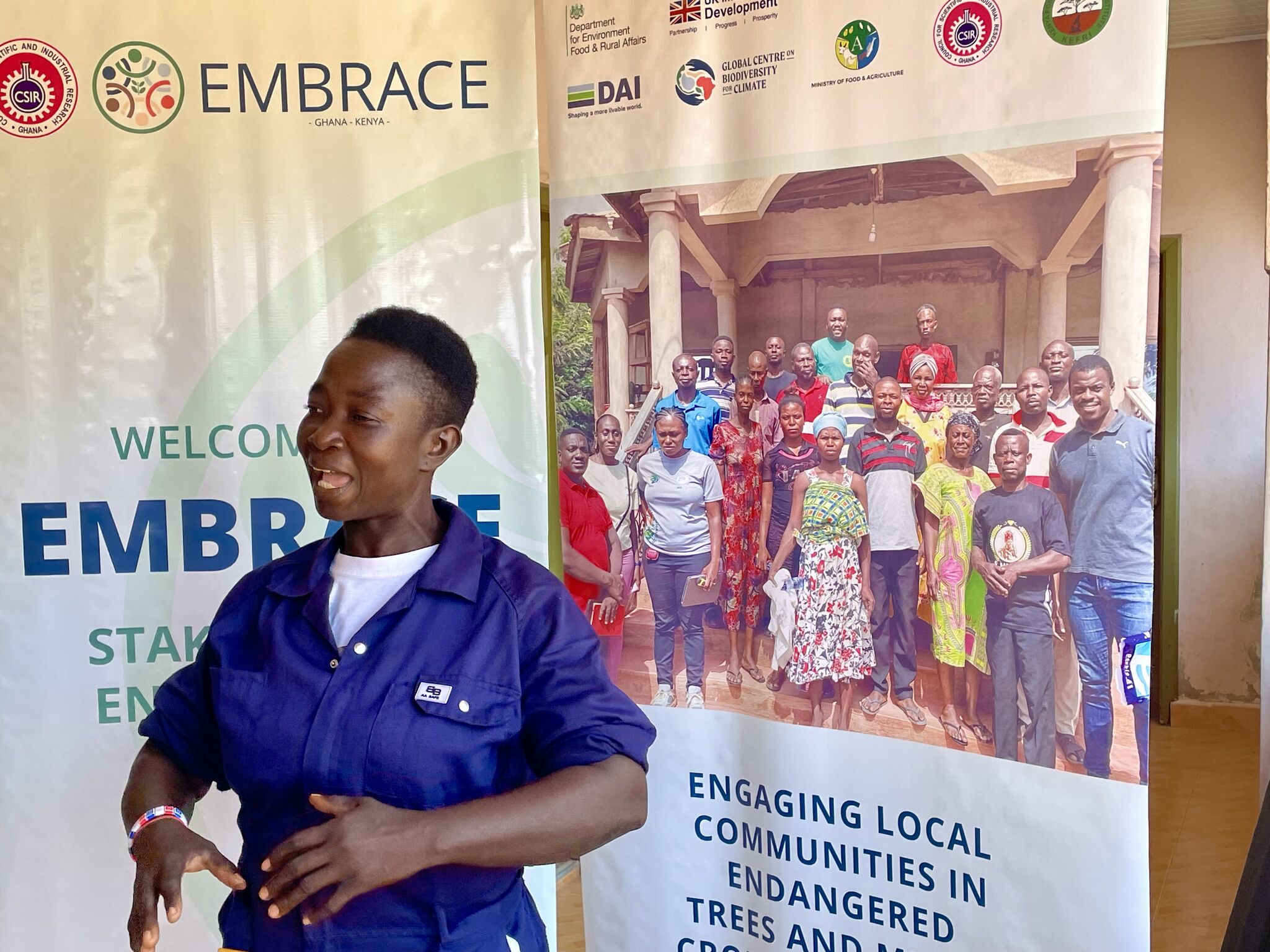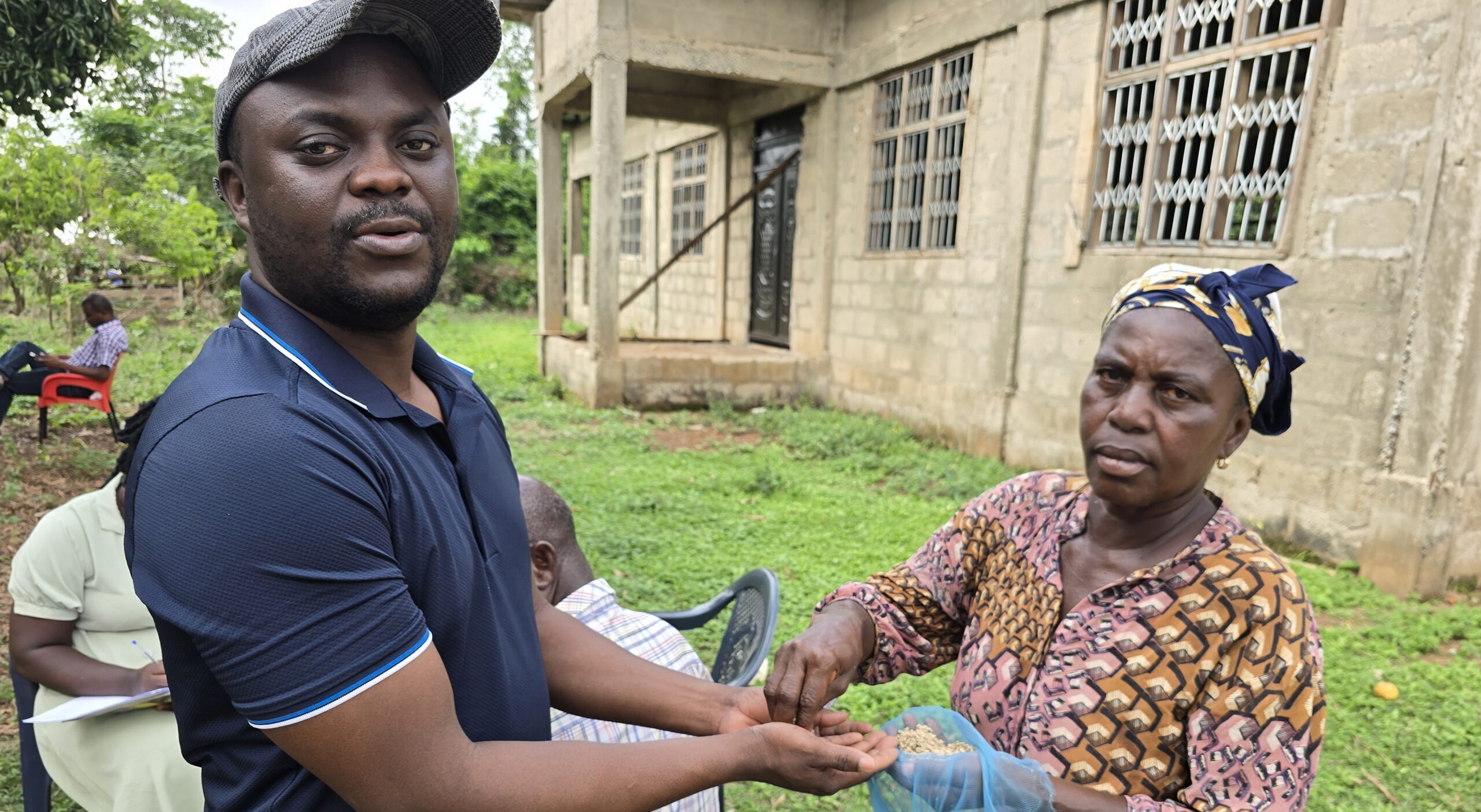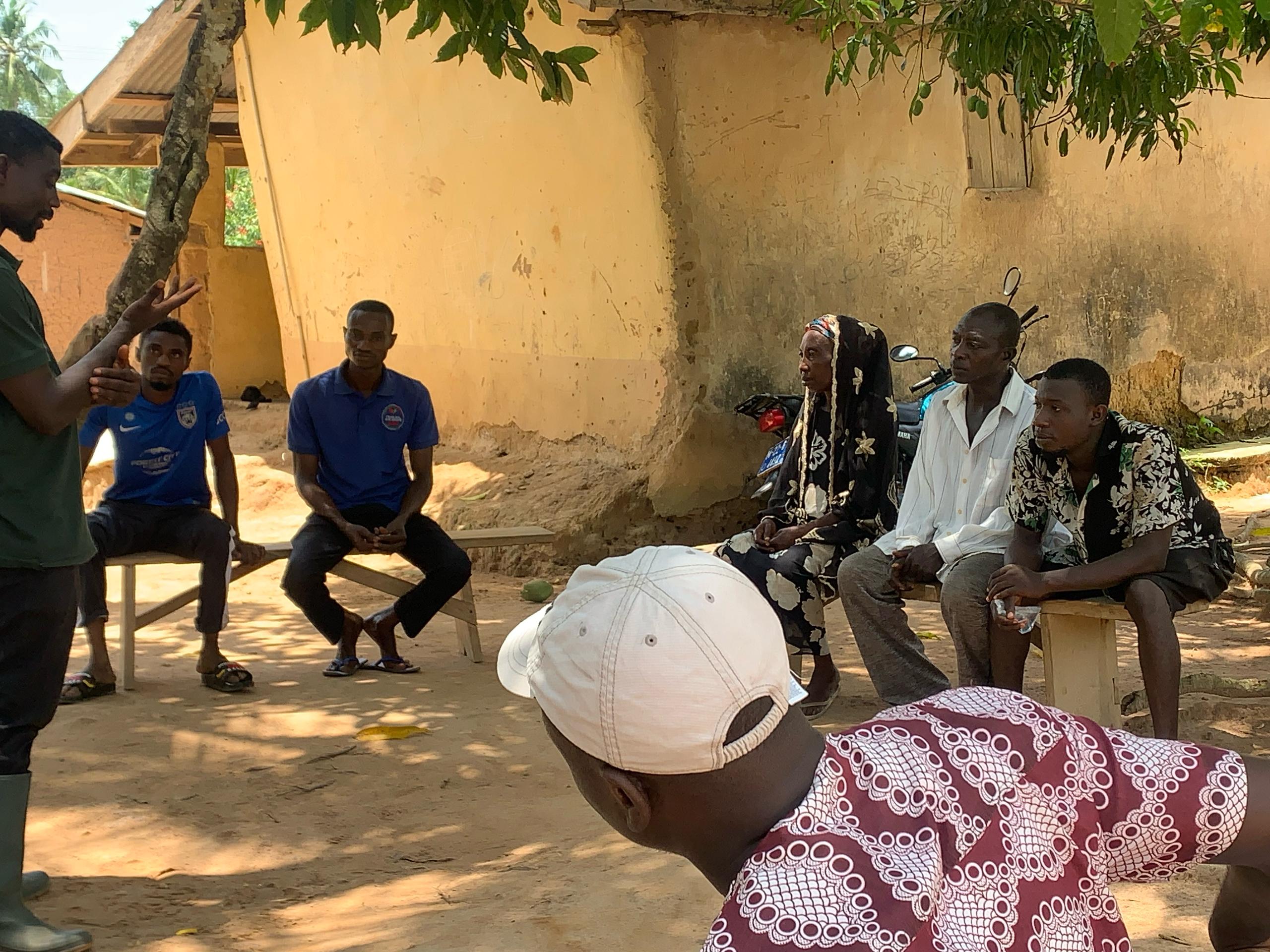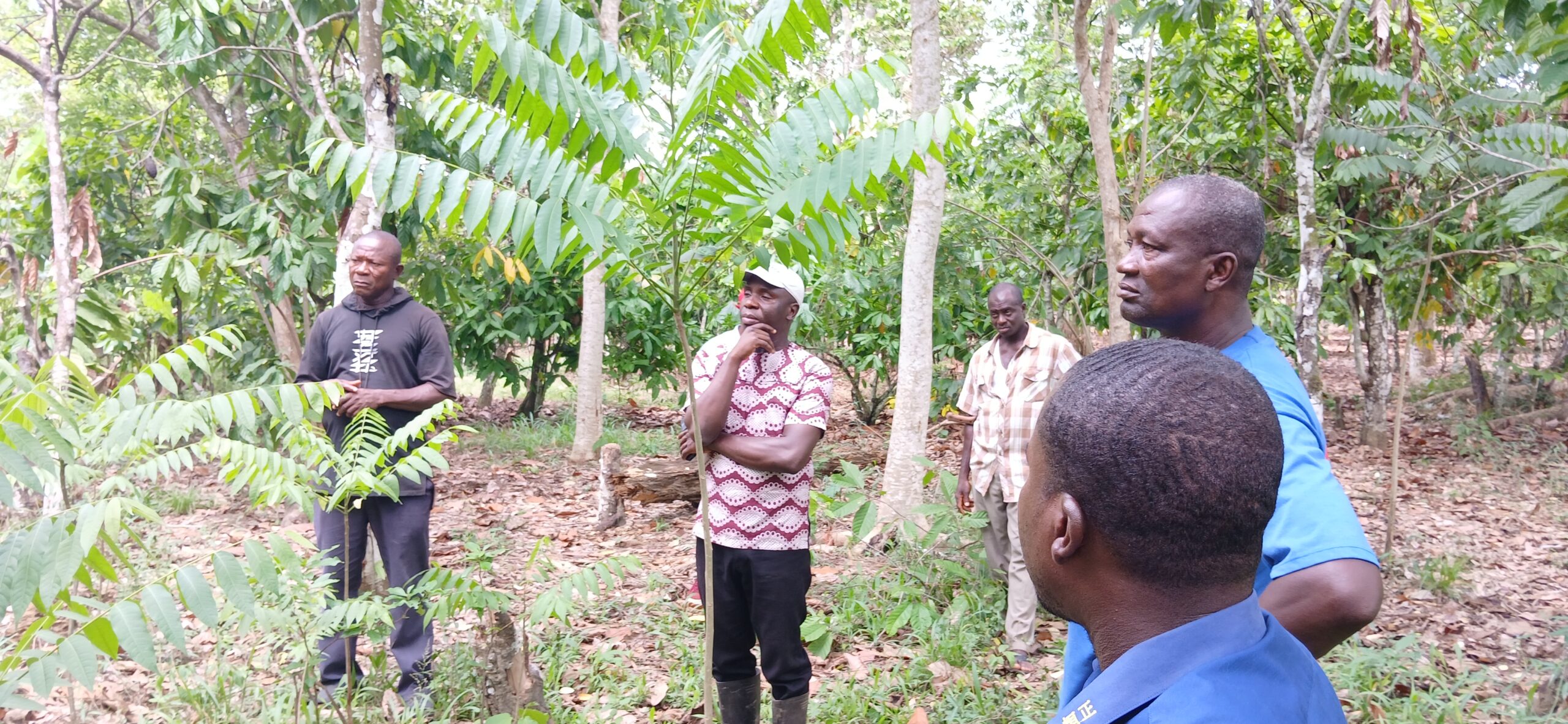Project Summary
Countries: Ghana, Kenya
Project Partners: AgroCircle, Kumasi-Ghana, Biodiversity Research Support Services, UK, iSLED, Kumasi-Ghana, Rowetwo Tree Nursery, West Pokot-Kenya
Principal Investigators: Dr Clement Oppong Peprah, Research Scientist, Council for Scientific and Industrial Research-Crops Research Institute and Dr. Jeannette Aduhene-Chinbuah, Research Scientist, Head of the Plantain and Banana Section at CSIR–Crops Research Institute, Ghana and adjunct lecturer at KNUST.
Contact: c.oppongpeprah@cropsresearch.org





Challenge
EMBRACE responds to the pressing challenge of biodiversity loss and climate vulnerability in smallholder farming systems across Ghana and Kenya. Rural communities depend heavily on natural resources for food, income, and cultural identity, yet rapid deforestation, land degradation, and the neglect of underutilized crops and endangered tree species threaten their resilience. Traditional knowledge on sustainable land management is gradually being lost, while modern farming practices often overlook the importance of ecological balance. This creates a dual challenge: how to restore degraded ecosystems while also improving livelihoods in ways that are socially inclusive and climate-resilient. The project therefore seeks to bridge scientific evidence with community knowledge, developing agroforestry models and conservation strategies that safeguard genetic diversity, enhance ecosystem services, and ensure fair benefit-sharing.
Insight
Through ecological surveys and aerial mapping, EMBRACE has built a robust evidence base to understand the richness of species, the extent of land degradation, and the potential for restoration. This scientific foundation is being paired with community co-creation, where farmers, traditional leaders, and local institutions help design agroforestry farmstead models that integrate endangered tree species with underutilized food crops. These farmsteads not only safeguard genetic diversity but also provide sustainable livelihood opportunities through practices such as beekeeping, snail rearing, and mushroom cultivation.
Collaboration
EMBRACE thrives on strong partnerships that bridge science, policy, and community action. At its core, the collaboration between the Council for Scientific and Industrial Research Crops Research Institute (CSIR-CRI) in Ghana, CSIR-Forestry Research Institute, the Kenya Forestry Research Institute (KEFRI), and the University of Eldoret in Kenya, ensures a cross-country exchange of expertise and experiences. These institutions provide scientific rigour, technical capacity, and policy engagement pathways to embed project findings into national strategies. Beyond research partners, the project works closely with local communities, traditional authorities, district-level Forestry and Agriculture offices, and smallholder farmer groups, ensuring co-creation and ownership of solutions.
With EMBRACE, we are together with local communities planting legacies. Every seed conserved, every degraded land restored, carries the promise of biodiversity, culture, and resilience for posterity.
Discover More
Dr. Clement Oppong Peprah
Dr. Clement Oppong Peprah is a Research Scientist (Agronomist) at the Council for Scientific and Industrial Research-Crops Research Institute (CSIR-CRI), Ghana. He co-leads the EMBRACE project, focusing on biodiversity conservation, climate resilience, and sustainable agroecosystems. His research spans food systems, agroforestry, and community-based adaptation strategies, with a strong emphasis on gender equality and social inclusion. Dr. Peprah has worked on multi-institutional projects across sub-Saharan Africa and contributed to policy dialogues on climate-smart agriculture. Passionate about bridging science and community action, he works to ensure that research translates into practical solutions for resilient livelihoods. He holds a PhD in Agricultural Science from the Tokyo University of Agriculture and Technology, Japan.
Dr. Jeanette Aduhene-Chinbuah
Dr. Jeannette Aduhene-Chinbuah is a Research Scientist and Head of the Plantain and Banana Section at CSIR–Crops Research Institute, Ghana, and an Adjunct Lecturer at KNUST. She co-leads the EMRACE Project, advancing biodiversity conservation, climate resilience, and sustainable agroecosystems. She earned a PhD in Biological Production Science (Soil Chemistry) from Tokyo University of Agriculture and Technology, where she also served as Assistant Professor. Her work integrates science and practice to strengthen farming communities through food systems, agroforestry, and inclusive climate adaptation. With expertise in gender-responsive approaches, she contributes to multi-disciplinary projects and climate-smart agriculture policy.


